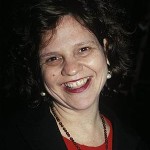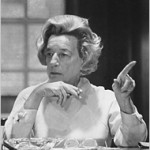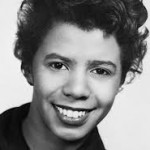 Jean Kerr (July 10, 1922 – January 5, 2003)
Jean Kerr (July 10, 1922 – January 5, 2003)
”I think if you can write a play, or produce a play, the first step toward success [is] if people don’t want to kill themselves in the lobby. Now there must be four or five other steps, but that’s the first.”
 Suzan-Lori Parks (Born May 10, 1963)
Suzan-Lori Parks (Born May 10, 1963)
“People ask me when I decided to become a playwright; I tell them I decide to do it every day. Most days it’s very hard because I’m frightened — not frightened of writing a bad play, although that happens often with me. I’m frightened of encountering the wilderness of my own spirit, which is always, no matter how many plays I write, a new and uncharted place. Every day when I sit down to write, I can’t remember how it’s done.”
 Wendy Wasserstein (October 18, 1950 – January 30, 2006)
Wendy Wasserstein (October 18, 1950 – January 30, 2006)
“The trick… is to find the balance between the bright colors of humor and the serious issues of identity, self-loathing, and the possibility for intimacy and love when it seems no longer possible or, sadder yet, no longer necessary.”
 Tina Howe (Born November 21, 1937)
Tina Howe (Born November 21, 1937)
“…the cruel part is that, to let the play live, you have to surrender control and let your characters go. You have to let them stumble, fall into walls and be mute, let them drift and be lost. If you hold the reins too tight, they won’t spring to life.”
.
 Tony Kushner (Born July 16, 1956)
Tony Kushner (Born July 16, 1956)
“I love reading; it’s a great way to avoid writing.”
 Katori Hall (Born May 10, 1981)
Katori Hall (Born May 10, 1981)
“I’ve had frank conversations with theaters who say, ‘We love your play, but we’ve already done a play by another black person this year,’ or ‘I don’t think the kind of people you write about are the ones our audience wants to see’… Up and coming young black female writers are still struggling to have their voices heard and have their plays produced.”
 Theresa Rebeck (Born Feb 19, 1958)
Theresa Rebeck (Born Feb 19, 1958)
“Plays written by women are not being produced. In 2007, the one year I opened a play on Broadway*, I was the only woman playwright who did so. That year, nationwide, 12 per cent of the new plays produced all over the country were by women. That means 88 percent of the new plays produced were written by men. (Back in 1918 before women had the right to vote, the percentage of new plays in New York, written by women, was higher. It was higher before we had the vote.) Generally, over the last 25 years the number of plays produced that were written by women seems to have vacillated between 12 and 17 percent. This is a disastrous statistic…”
*Rebeck’s plays SEMINAR and DEAD ACCOUNTS opened on Broadway in 2011 and 2012, respectively.
“I feel it’s my social responsibility to shine a light on areas that don’t get seen. My personal feeling is that it’s an artist’s responsibility to be engaged with the culture. And when the culture is going through turmoil, I think an artist can’t ignore that. I don’t feel that every artist has to be politically engaged, but I can’t imagine that you can be an active participant of this culture and not in some way reflect that in the work you are creating.”
 Lillian Hellman (June 20, 1905 – June 30, 1984)
Lillian Hellman (June 20, 1905 – June 30, 1984)
“If I had to give young writers advice, I’d say don’t listen to writers talk about writing.”
*****************************************************************************************
Selecting from my quotations collection for this post, I found myself drawn to the playwrights above. I admire each one of them for having the courage to find the way to “say it like it is” in a personal and distinctive voice. BRAVO, PLAYWRIGHTS.Next up: ACTORS
PHOTO CREDITS: Hall: Playbill VaultHansberry: Corbis Hellman: Sam Falk/The New York Times Howe: New York University Kerr: Playbill Vault Kushner: Reuters Nottage: Al Seid/Los Angeles Times Parks: Ruth Fremson/The New York Times Rebeck: Sara Krulwich/The NewYork Times Wasserstein: Retna, LTD


Recent Blog Comments